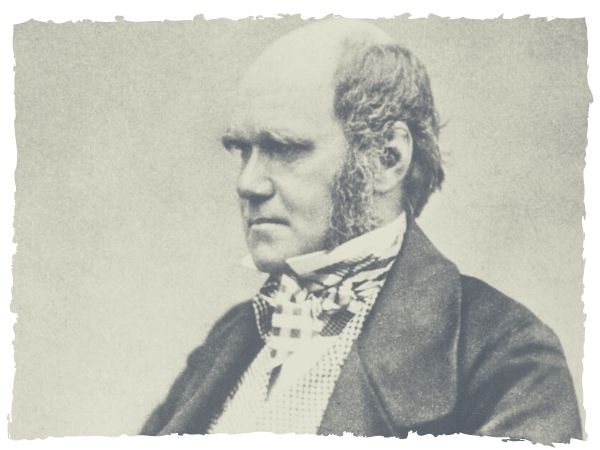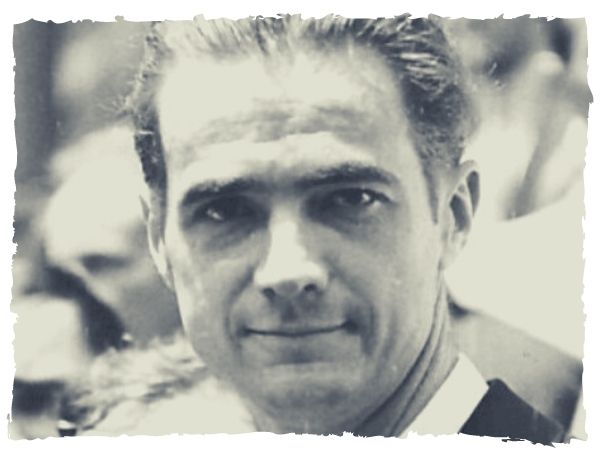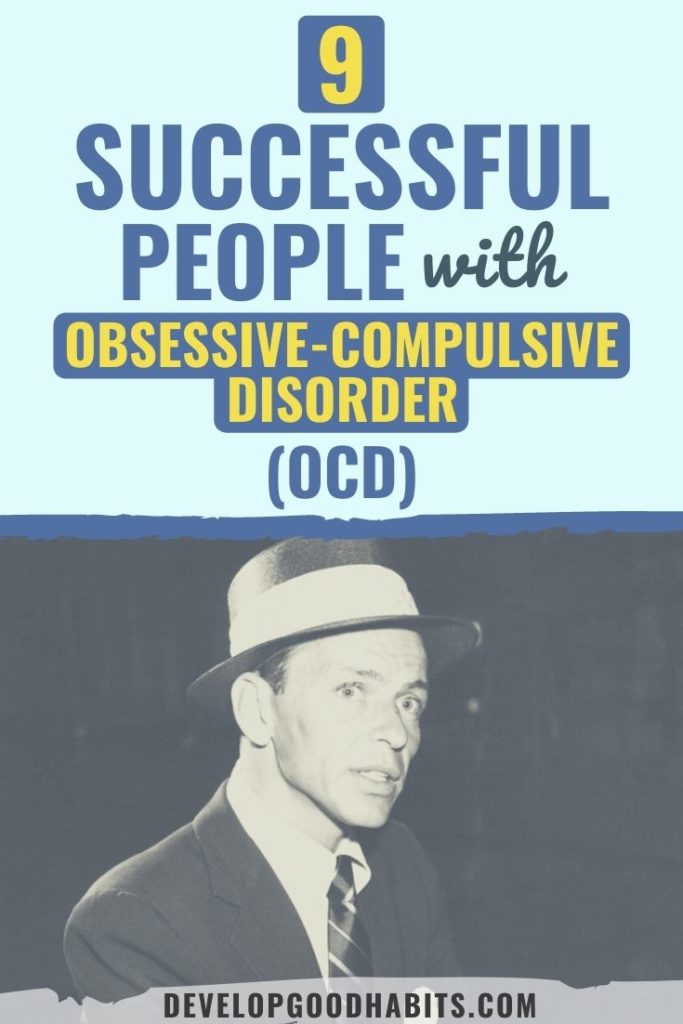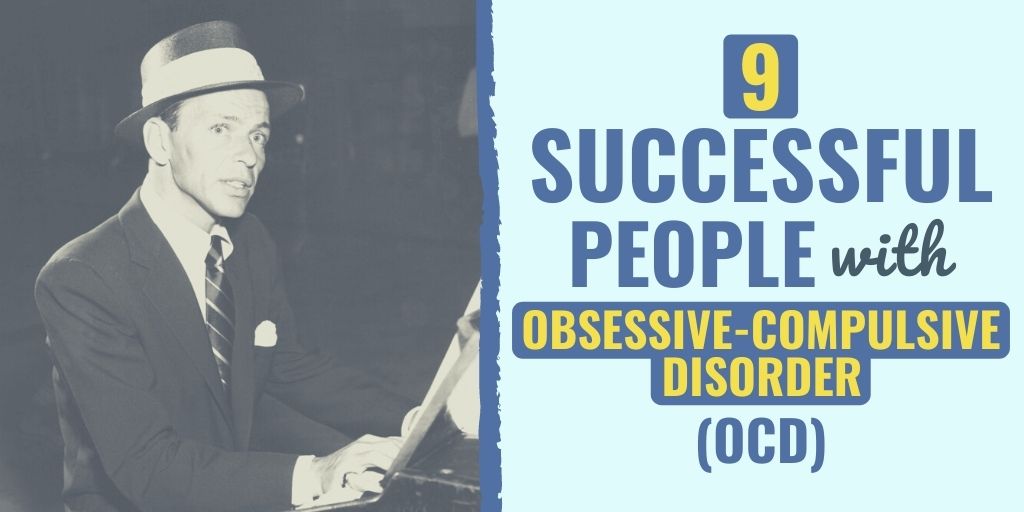Mental illness is shaking off its outdated stigma, and people are starting to have a dialogue about their struggles with these invisible disorders. Out of all of the mental illnesses, the most common fall under the category of anxiety disorders, which impacts 18.1% of the American population each year. This specific type of mental disorder develops from a variety of risk factors in addition to one’s unique personal circumstances, such as genetics, brain chemistry, and personality.
Obsessive-Compulsive Disorder (OCD) is onen anxiety disorder that is thought to impact 1 in 40 adults. And, seeing as it equally affects men and women of all races, ethnicities, and socioeconomic backgrounds, it should come as no surprise that there are many well known, successful people who are struggling with this disorder.
In this article, we are going to take a look at 9 people who have found success despite their OCD diagnosis. But first, we will dive into what OCD is and why it could be perceived as a barrier to success.
What Is OCD?
While many assume that what they see on TV and in movies is accurate when it comes to obsessive-compulsive disorder, it’s often portrayed on a very superficial level. The media tends to fail to paint a comprehensive picture of this disorder. Those who truly suffer from OCD know that it is very distressing and the impacts go far beyond a need for order or cleanliness in one’s life.
OCD is an anxiety disorder characterized by obsessive thoughts, compulsive behaviors, or both. The unwanted thoughts associated with OCD can come in the form of distressing images, impulses, or ideas, and they are both intrusive and persistent. Sufferers have little to no control over their obsessions, so while someone who doesn’t suffer from OCD can filter out or “get over” unwanted thoughts, people with an OCD diagnosis struggle with significant discomfort that interferes with their ability to function.
Compulsions are rituals performed in an effort to try to reduce the distress caused by the obsessive thoughts associated with OCD. Compulsions can seem senseless to those on the outside, but they provide temporary relief for the person performing them. While there is a wide range of ways in which this can manifest itself in one’s everyday life, one thing that people suffering from OCD have in common is their disdain for uncertainty.
This is where the stereotypical compulsion of ‘checking’ comes into play. In order to be sure the house is locked or the oven is off, someone with OCD may need to check on these things excessively. Checking is an example of an overt compulsion–as it’s something that outsiders can see. However, compulsions can also be performed mentally by praying or counting. And while these hidden compulsions go unnoticed by others, mental rituals can be equally as debilitating as those that are observable.
Most people with OCD recognize that their obsessions are irrational, but still believe the discomfort can only be relieved by performing compulsions. But the temporary relief that’s felt only works to reinforce the obsession, which leads to a behavioral cycle that causes frustration and a loss of hope for the sufferer.
Like other mental health disorders, OCD exists on a spectrum of severity. But, while it can manifest itself in a variety of ways, OCD can have a great impact on one’s ability to perform everyday activities, stick to commitments, maintain relationships, and deal with stress in general. Because of this, people with OCD can have a harder time achieving their goals than those without OCD.
A 2018 study that reviewed the educational success of people with OCD found that those with an OCD diagnosis were 40% to 60% less likely to meet their educational milestones in school. Furthermore, the study found that people with OCD were 28% less likely to start college–and those who did were 41% less likely to graduate.
But let’s take a look at 9 successful people with OCD who defied the odds and achieved their goals.
9 Successful People with OCD
1. Howie Mandel
America’s Got Talent’s Howie Mandel is very open about his struggles with OCD. The main source of his anxiety is germs, which prevents him from shaking other people’s hands, touching handrails, and even tying his shoes at times.
Mandel reports that his biggest fear, germs, is so frequently triggered in everyday life. This can be overwhelming and even cause him to shut down for the day.
Mandel uses his celebrity status to raise awareness about OCD. He published “Here’s the Deal: Don’t Touch Me,” in 2009 to disclose his struggles with the illness, and has even testified about his experience with OCD in Congress. Mandel’s goal is to help remove the stigma of mental illness and encourage people to be open about their struggles.
2. Charles Darwin

This scientist is best known for developing the theory of evolution and subsequently writing “On the Origins of Species”. Darwin’s name has clearly been passed on for generations due to his thesis, but something that is lesser known about him is that many believe he suffered from OCD. This is thought to be true because of Darwin’s well-documented struggle with unwanted and intrusive thoughts.
It was noted that Darwin was kept awake by these thoughts, and he felt the need to perform compulsions such as closing his eyes as tight as he could or repeating a mantra to gain reassurance that some of his fears wouldn’t be realized. He often replayed interactions in his head over and over to be sure he hadn’t made a bad impression in someone else’s presence.
Finally, there is written evidence that suggests Darwin obsessed over minor physical imperfections–flaws with his appearance that were so minute that went unnoticed by other people. The shame that came along with these obsessions was debilitating, but Darwin still managed to achieve great success.
3. David Beckham
David Beckham hasn’t been nearly as successful in reducing the impact that OCD has on his life as he has been on the soccer field. Throughout his career, Beckham has become widely regarded as one of the most accomplished English soccer players of all time. He has been in the spotlight for most of his life, and not only has he won some of the greatest awards in international soccer, he has also led several teams to championships.
Due to his celebrity status, Beckham has been able to have a great impact on people’s lives by opening up about his challenges with OCD, and he continues to work to reduce the stigma associated with the condition.
4. Amanda Seyfried
Amanda Seyfried is an American actress who went from being an extra on a soap opera to being nominated for an Academy Award, Golden Globe, Critics’ Choice Award, and Screen Actors Guild Award. Like some other celebrities, Amanda Seyfried has been very open about her OCD, and she is a big advocate for the de-stigmatization surrounding antidepressants.
Some of the struggles Amanda faces include a fear that she will leave the oven on and a belief that she has a developing brain tumor. She even went to the extreme of seeing a neurologist to get an MRI of her brain to be certain she was healthy. When the neurologist referred her to a psychiatrist, she was able to get the treatment she needed to get her OCD under control and continue with her acting career.
Despite her mental turmoil, Seyfried has been able to have a very successful career in Hollywood and shows no signs of slowing down any time soon.
5. Martin Luther
Although it wasn’t until 1868 that OCD was thought to be a disorder, that certainly doesn’t mean that people who lived before this time didn’t suffer from it. The difference back then was that those who had OCD were left wondering why they were different from others or what the basis of their thoughts were.
One such person was Martin Luther, the German composer, priest, friar, professor, and leader in the Protestant Reformation, who–unbeknownst to him– suffered from what would later be defined as OCD.
According to reports, Martin Luther suffered from the specific type of OCD called scrupulosity OCD, where one’s obsessions largely surround their highest values. As a very religious person, Luther experienced intrusive thoughts of wrath, painstaking urges to curse God, and unwanted images of the devil popping into his mind. He attended confession excessively to counteract these obsessions, which is thought to have been his compulsion as he sought reassurance.
At times, Luther blamed a battle between God and the devil for his intrusive thoughts, and is quoted as saying, “When the devil introduces such perverse thoughts into our heads against our will…God wishes to occupy us so that we don’t get lazy and snore, but fight against them and pray.”
Despite his OCD, it has been said that Luther’s reforms succeeded because of his energetic, charismatic personality. As he traveled, people came from all over just to get a glimpse of his cart as he drove through towns, which shows us today how successful he was during his time.
6. Lena Dunham
Despite her struggle with OCD, Lena Dunham has led a very successful career in acting and directing, and even made her way to Time Magazine’s list of the 100 most influential people in the world in 2013. Dunham is well known for her starring role in HBO’s Girls and her advocacy for social justice–but more recently, Dunham has become outspoken regarding mental health awareness. With an OCD diagnosis, she has her own experience with mental health issues, which she wrote about in her book, Not That Kind of Girl.
Dunham explains in her book that she has been able to find success despite her OCD due to her participation in therapy and her willingness to be outspoken about her disorder. She has now received several Emmy nominations and two Golden Globe Awards, in addition to being the first woman to win the Directors Guild of America Award for Outstanding Directing of a Comedy Series.
7. Howard Huges

Howard Hughes, who was portrayed by Leonardo Dicaprio in the movie The Aviator, was an influential American businessman, record-setting pilot, film director, engineer, and philanthropist. During his lifetime, Hughes was known as being one of the most financially successful people in the world.
However, with an OCD diagnosis, Hughes had a debilitating obsession with germs that strengthened with age, and had to deal with compulsions surrounding efforts to protect himself from external contamination. Hughes didn’t let his OCD become a barrier to being so successful that, decades later, inspired a hit movie.
8. Frank Sinatra
While Frank Sinatra wasn’t as open about his struggles with OCD as some of the others on this list, in 2011, his wife spoke about the lesser known side of this influential music icon of the 60s. Despite his OCD, Sinatra remains one of the best-selling music artists of all time. Sinatra’s wife told the story of her late husband in her memoir, Lady Blue Eyes: My Life with Frank. In her book, she detailed the singer’s intense struggle with OCD.
What onlookers didn’t see when Frank Sinatra was on stage was his obsession with cleanliness and his compulsion to take over ten showers every day to maintain sufficient hygiene. People who knew him often associated him with smelling good and looking clean-cut at all times. While these traits may be seen as positive and necessary for success in Hollywood, Sinatra was debilitated by his unwanted thoughts of germs and contamination.
9. Suga
Lead rapper for K-pop band BTS, Suga, lives with OCD, coupled with depression and social anxiety. He has used his music as an outlet to express his struggles with the disorder, even though there is a big stigma surrounding mental illness and suicide in Korean society. His hope is that the stigma surrounding mental health conditions will be broken down and those suffering will feel that they’re not alone when listening to his music.
Suga became a successful recording artist despite his OCD, and in doing so, he hopes to inspire others to be open about their feelings and internal struggles and create an environment where people ask for help and admit it when things are hard.
Final Thoughts on Successful People with OCD
In this article, we looked at nine successful people who, despite their OCD diagnosis, have made great achievements in their lives. And while many people think that the traits of OCD–cleanliness and order–naturally lead to success, it’s important to remember that obsessive-compulsive disorder is a disorder, meaning it causes more harm than good.
To help overcome struggles that you may face to succeed, check out this article on 15 productive hobbies to make you a successful person.

Connie Mathers is a professional editor and freelance writer. She holds a Bachelor's Degree in Marketing and a Master’s Degree in Social Work. When she is not writing, Connie is either spending time with her daughter and two dogs, running, or working at her full-time job as a social worker in Richmond, VA.


